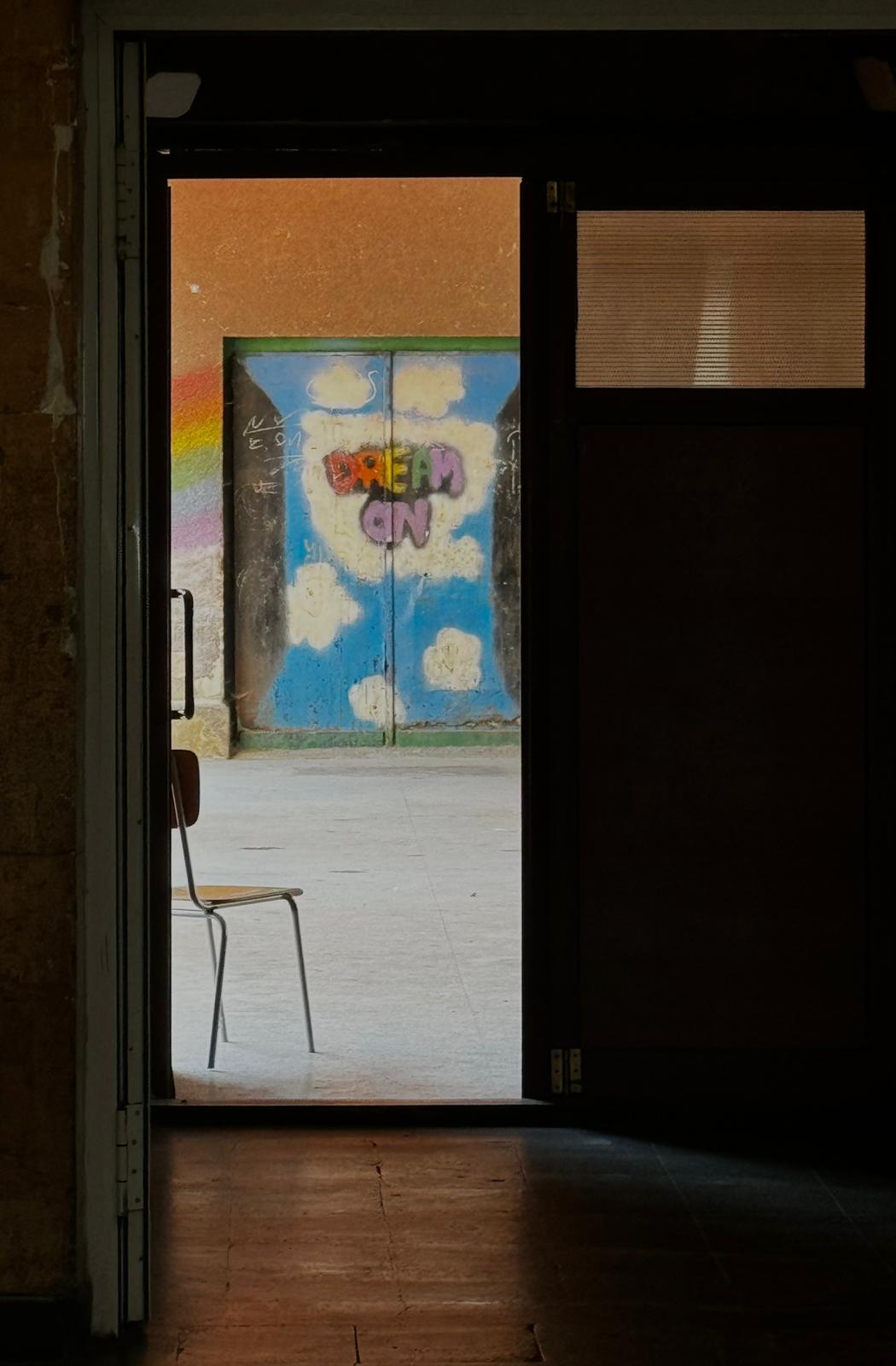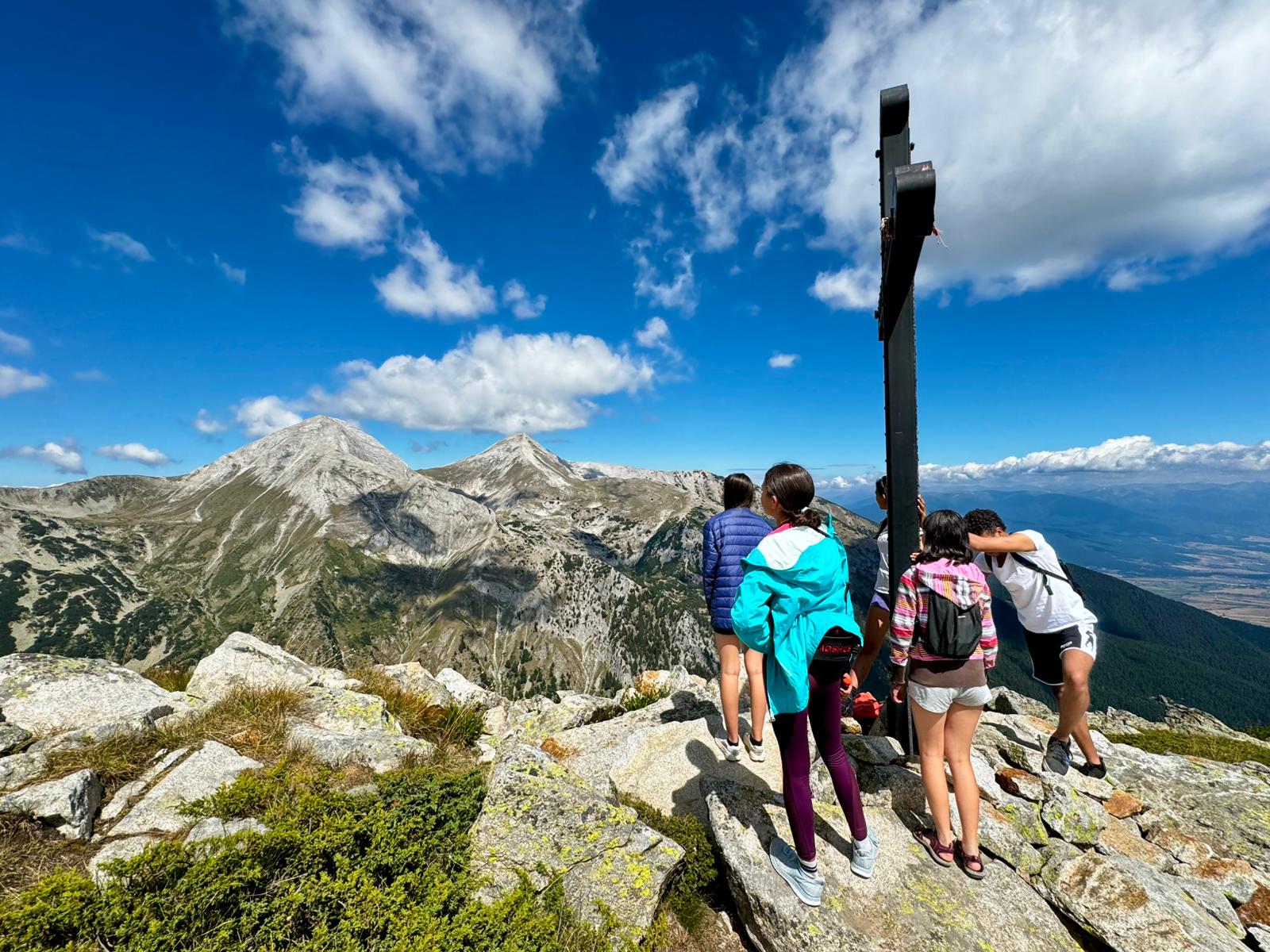alina is a 17-year-old homeschooled student from Sofia, Bulgaria, with a passion for sprinting, climbing, maths, and the arts.
Her varied educational journey — spanning six different schools before transitioning to homeschooling — has given her a broad perspective on how different systems work and how they impact students’ well-being.
In her own words, she shares her experiences with the Bulgarian education system and the lessons she has drawn from them.
From my earliest years attending different elementary schools, I noticed how the system limits freedom of expression and how easily teachers can abuse their power.
I remember a case with a PE teacher in sixth grade when he told me to go with him to the corner of the gym. We were standing there and he started explaining that if I didn’t start participating actively in the lessons and playing, he would call the social services and they would “take me away” from my parents.
There was no one around us, and he was talking very seriously. This was scary, especially for a child who had not yet fully understood themselves.
What will happen to a child who does not have a healthy relationship with his parents and does not understand what is happening?
If he does not have support, this can scare him and affect him a lot. I was not scared because I knew that there was no way this could happen, but I was still worried and told my parents.
In my fourth school, I met another teacher, a Spanish teacher who couldn't separate her personal problems from her work and punished us for them, making the lessons a real nightmare. It wasn't just heartless, it was unbearable.
She often behaved like an animal, yelling and insulting us, as if her goal was to humiliate us rather than teach us. Her attitude was unfair, but she wasn't the only teacher who contributed to my negative experience.
There were others who, with their behavior, created difficulties and added to the atmosphere of chaos.
Sometimes teachers cross all sorts of boundaries. With their attitude.
With shouting and hysterical statements.
As a result, children have to go to a psychologist.
Can this attitude really be justified?
Saying that you're going back to therapy because of a teacher who's supposed to lead you forward?
How should a teacher behave?
Should they yell?
Should they take their stress out on the students?
Or should they be an example of humanity and understanding?

After the classes with her decreased, the problem did not disappear.
The class continued to be in chaos — lack of discipline, fights, mockery. The perception of shouting and abnormal behavior had become established and was becoming more and more normal.
I felt like a cub in a zoo — but any zoo would have been better. I couldn't stand it.
After another change of school, I ended up in the "smartest class", but the intelligence of my classmates did not mean humanity. The mental harassment I experienced there was even more merciless — mockery and contempt.
The stress was so great that it affected my health. I felt not only rejected, but also humiliated. It was more than insult — it was real cruelty. During this period, I could not do anything, I was helpless.
I moved again, to my sixth school.
I found myself in a more relaxed environment.
No one bullied me, but it gave me a chance to realize how serious problems the education system has. Too often, instead of encouraging imagination and creative thinking, schools kill motivation and curiosity.
In many education systems around the world, school is a place where we learn to fit into frames. Instead of teaching us how to think, they teach us how to repeat. Instead of inspiring us, they kill dreams.
The place called ‘school’ may seem to be changing, that it is newer and different — but it is not.
The differences are only in appearance – more expensive buildings, more expensive thinking, more expensive clothes and things. They think it’s modern, but underneath, nothing has changed.
My experience with psychological bullying and frequent changes of schools taught me that the system is not designed to protect children. By ‘the system’, I mean the educational environment and its structures that fail to protect children from harm. On the contrary – it often breaks them.
In schools, mental stress and bullying can lead to serious psychological problems and even tragedies such as violence between children.
The situation is extremely delicate, as various factors – from social networks to the family environment – influence the way children cope with pressure and perceive a given situation. The difference between ordinary stress and severe trauma is very thin and dangerous.
These cases are not isolated, but reflect a systemic problem. The TV series Adolescence gives a realistic look at this difficult topic.
I hope that one day, school will at least be a place where children feel safe — not humiliated. They deserve more understanding and support, and schools do not have it.

School should shape minds, not break them. Until it does, we will keep losing more than we teach.
I’ve learned a lot about people and how they act, but that’s because I’m unusually observant and resilient. Most children couldn’t turn such harmful experiences into lessons — and they shouldn’t have to. Safety in schools should be the norm, not the exception.
📢 Call to Action:
If you’re a young person with a unique learning journey — whether through homeschooling, unschooling, alternative education, or simply navigating a challenging school environment — your story matters. Share it. Your voice can inspire others and help shape a better future for education.
More from
Alternate Learning
category
Stay Ahead with the future of AI.
Join 1000+ readers.

















